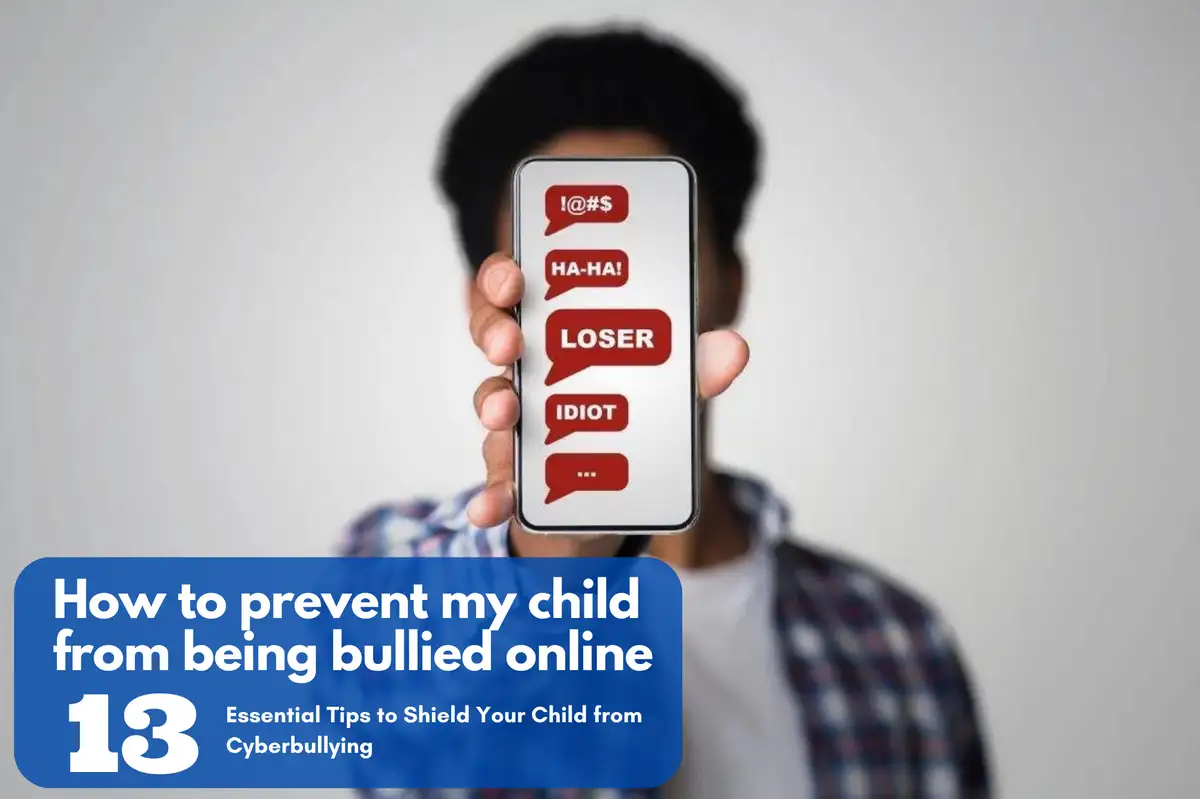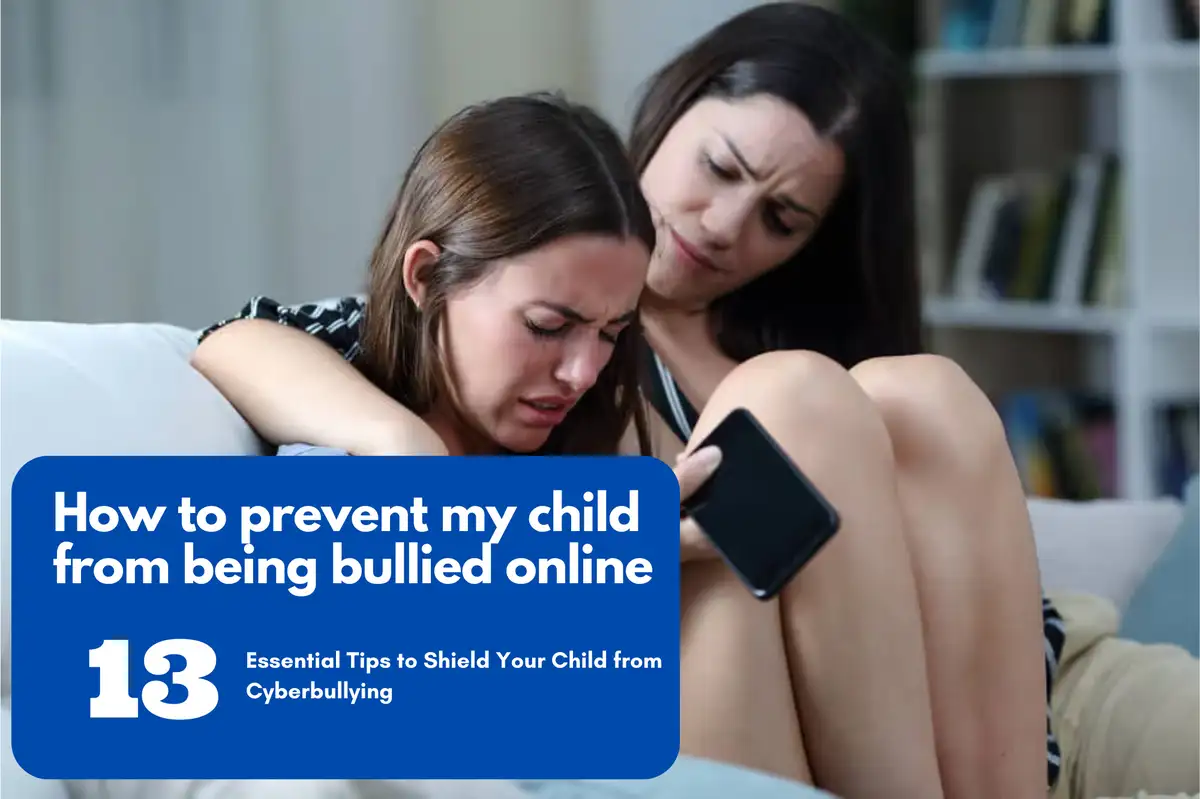Comprehensive Guide: 13 Essential Tips to Shield Your Child from Cyberbullying
In today's interconnected era, cyberbullying has become a pressing concern for many parents. It's crucial to not only understand the challenges that our children face online but also to equip them with the tools and knowledge they need to navigate the digital world safely. Here, we delve into 12 robust strategies to bolster your child's defenses against online threats and cyberbullying.1. Open Dialogue and Trust Building
Initiate regular conversations with your child about their online experiences. Make them feel comfortable sharing any unpleasant encounters. Foster a home environment where they know they won't be reprimanded for speaking up.2. Familiarize Yourself with Technology
Stay updated with the latest digital platforms and applications that your child frequents. By understanding their digital territory, you're better positioned to offer guidance and interventions when necessary.3. Parental control app
Avosmart: A Game-Changer in Parental Control
With cyberbullying on the rise and the increasing amount of time children spend online, parental control tools have become indispensable in the modern era. Among the myriad of tools available, Avosmart stands out as a gold standard in assisting parents to combat online threats and manage their children's digital well-being.Avosmart: Comprehensive Monitoring without Intrusion
One of Avosmart's standout features is its ability to provide parents with an insightful glimpse into their child's online conversations. This feature allows them to be alerted to any potential psychological harm or instances of online bullying. What sets Avosmart apart is that parents don’t need access to their child’s social media accounts directly. Instead, a comprehensive overview is made available, ensuring children's privacy while still giving parents the peace of mind they need.Time Management and Usage Insights
The Avosmart platform is lauded as one of the world’s best parental control systems, particularly for its robust time management features. It not only provides a detailed breakdown of the time children spend across different media but also offers functionalities to:- Set Daily App and Website Limits: Parents can determine a specific amount of time their child can spend on a particular application or website.
- Customizable Scheduling: The platform empowers parents with the ability to craft a bespoke schedule for their child's online activities. For instance, parents might allocate 2 hours a day for online activity but only between the hours of 4 pm to 8 pm when they are present at home.
- Night-Time Device Lock: To ensure a good night’s rest and prevent late-night browsing or gaming, Avosmart can be set to restrict device access during nighttime hours.
A Collaborative Approach to Online Safety
Avosmart isn't about invading privacy or total restriction; it's about collaboration. It facilitates a dialogue between parents and children, promoting understanding and joint decision-making. By using tools like Avosmart, parents can teach their children about responsible internet use and the importance of time management, while also ensuring their safety from online threats. As we navigate an increasingly digital age, platforms like Avosmart are invaluable. They provide the necessary tools and peace of mind that every parent seeks in the quest to protect their children online. By combining monitoring, time management, and collaborative features, Avosmart has indeed set a new benchmark in parental control platforms.4. Make Use of Parental Controls
Many devices and platforms come with built-in parental controls. Use these to set limits, monitor activity, and ensure your child is not exposed to potentially harmful content.5. Privacy Settings and Strong Passwords
Teach your child the significance of maintaining strict privacy settings on all their accounts. Additionally, stress the importance of using strong, unique passwords for each platform.6. Recognize the Signs
Stay vigilant for signs of distress in your child which might indicate they're a victim. Changes in behavior, reluctance to use devices, or emotional outbursts can all be indicative.7. Encourage Offline Socialization
While online friendships are valuable, encourage your child to build relationships offline too. Physical playdates, sports, and other group activities can provide a balanced social experience.8. Document Evidence
If your child reports an incident, ensure they capture and save evidence, such as screenshots. This can be invaluable for future reference or if the situation escalates.9. Teach Digital Etiquette
Just as we teach children to be polite in person, it's essential to instill the principles of digital etiquette. Emphasize the importance of respectful communication, even in the face of disagreements.10. Know When to Intervene
While it's vital to teach your child independence, recognize when it's time for you to step in. Whether it's contacting the platform administrators, other parents, or even law enforcement, prioritize your child's well-being.111. Join Parental Support Groups
There are many online parental communities where you can share experiences, gather advice, and learn from others who have faced similar challenges.12. Educate on the Dangers of Sharing Personal Information
Children may not always recognize the risks. Educate them on why they should never share personal details like their address, phone number, school, and other identifiable information online.13. Role-playing Scenarios
Occasionally, role-play potential online scenarios with your child. This can prepare them to respond calmly and confidently should they encounter cyberbullying. As digital landscapes evolve, the challenges our children face will continually shift. But with proactive strategies, open communication, and education, we can provide them with the armor they need to navigate the online world safely. Cyberbullying is a serious concern, but together, we can foster a secure digital environment for our children.
FAQ. How to prevent my child from being bullied online
How do you stop online abuse?
Stopping online abuse requires a multifaceted approach:- Report & Block: If you or someone you know is being harassed online, report the user to the platform administrators and block them.
- Limit Personal Information: Refrain from sharing personal details like your home address, phone number, or other identifiable data online.
- Use Strong Passwords: Make sure you have unique and strong passwords for all your online accounts to prevent unauthorized access.
- Educate Yourself: Stay informed about the common tactics cyberbullies and online abusers use.
- Seek Support: Talk to friends, family, or professionals about the abuse. Emotional support is crucial.
How can we protect children from cyber?
Protecting children from cyber threats includes:- Open Dialogue: Maintain open communication with your child about their online experiences and any potential threats.
- Parental Controls: Utilize parental control tools and apps, like Avosmart, to monitor and limit your child’s online activity.
- Online Etiquette: Teach your children about responsible online behavior and the importance of not sharing personal information.
- Privacy Settings: Ensure your child's online profiles are set to the strictest privacy settings.
- Stay Updated: Familiarize yourself with the latest online platforms and trends that children are using.
Do 37% of kids associate depression with online bullying?
Yes, recent studies have indicated that a significant number of kids associate depression with online bullying. In some surveys, up to 37% of children have reported feelings of depression, anxiety, and isolation due to experiences with cyberbullying. It's essential to recognize these emotional and psychological impacts and provide support to affected children.How do you deal with online aggression?
Dealing with online aggression effectively entails:- Stay Calm: Do not engage with aggressive users. Responding might escalate the situation.
- Document Evidence: Take screenshots or records of any aggressive behavior or messages. This can be useful if you decide to report the behavior.
- Block & Report: Most online platforms offer tools to block or report aggressive or abusive users. Make use of these features.
- Seek Support: Share your experiences with friends or support groups. Sometimes, just talking about it helps.
- Consider a Break: If online aggression becomes overwhelming, consider taking a break from that particular platform or social media in general.

